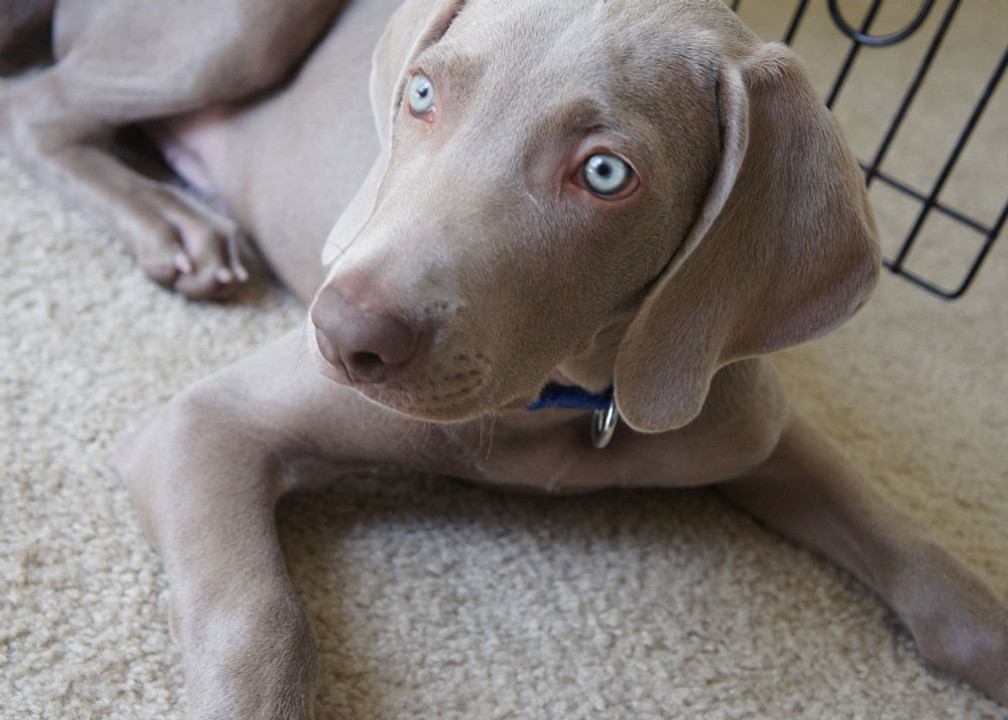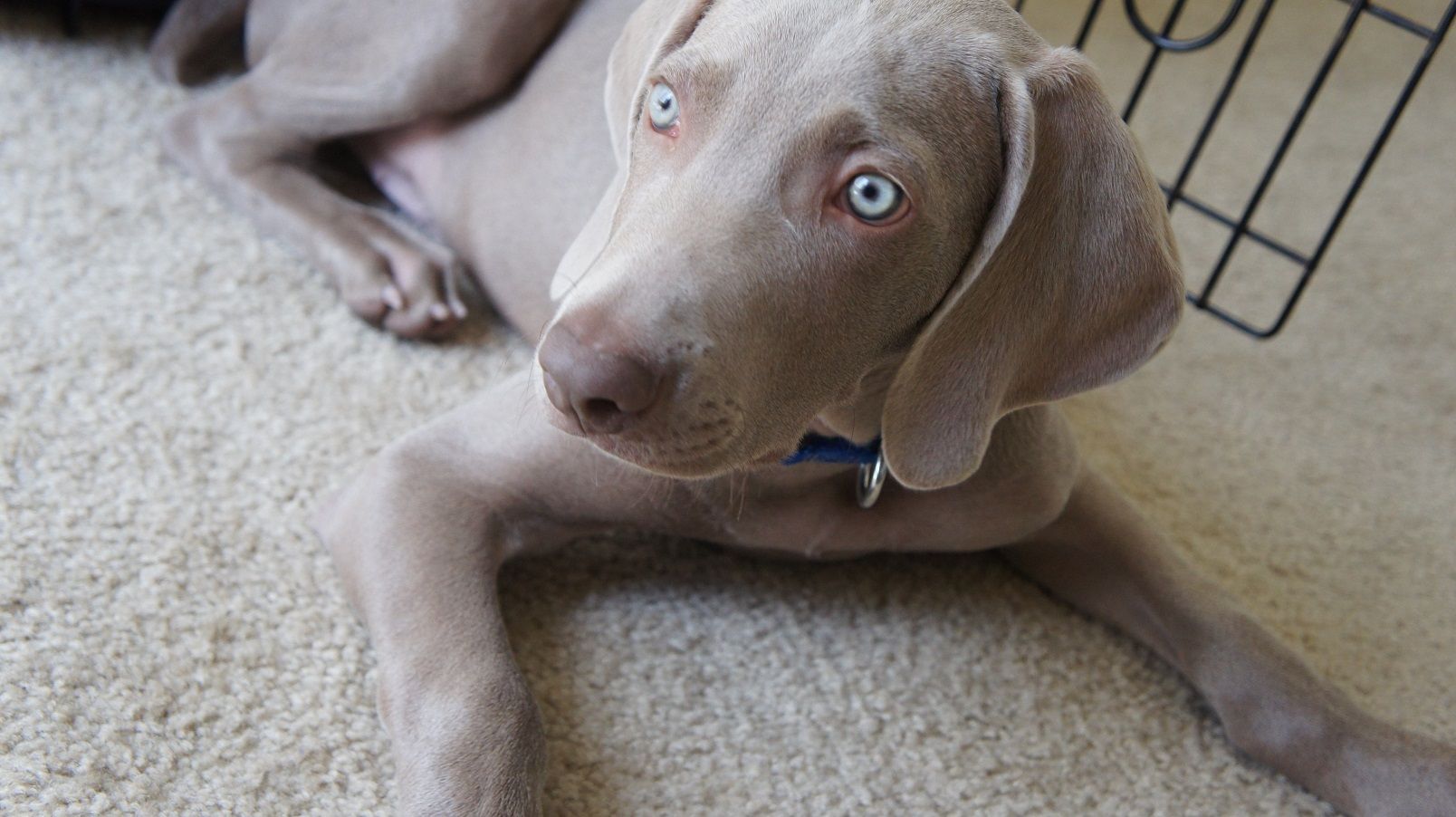How to Handle Separation Anxiety in Dogs

If your dog is dealing with separation anxiety, we know it can be stressful for everyone, not just the dog!
You wonder if your neighbors are going to complain about the barking. You worry what your dog is going to destroy next and you feel bad she’s feeling so anxious.
When a dog has separation anxiety, it generally means she is anxious about being left alone or about being separated from her owners.
A lot of dogs will show mild signs of anxiety such as whining when their owners are gone or refusing to eat. But other dogs will become so anxious they try to break out of their kennels or even start “digging” at the door. Others will bark and bark all day long.
In this post, we’ll go over what to do if your dog is experiencing separation anxiety.
How to handle separation anxiety in dogs

1. Talk with your dog’s vet or a professional trainer.
Getting help from a professional who works with dogs is often a “last resort.” However, if you’re dealing with some serious problems with your dog, it is worth getting some help sooner rather than later. Your vet may be able to prescribe temporary anti-anxiety medication for your dog while you continue to work on training. The medication does not necessarily have to be long term.
Likewise, working with a professional dog trainer who has experience with separation anxiety is worth the investment. A dog trainer will be able to help you come up with a plan on how to desensitize your dog to being left alone.
2. Make a list of your dog’s exact “triggers.”
What is it that seems to trigger your dog’s anxiety? Is it when you pick up your keys? Is it when you start to get ready for work? Is it when you put on certain shoes, signaling you’re about to go to work? Try to list out these actions that cause anxiety for your dog and then work to desensitize her to these triggers.
For example, if she starts to pant and pace and whine if you pick up your keys, you could pick up your keys 10 or 20 times randomly throughout the day when you’re not going anywhere. Eventually, you picking up the keys should have less and less significance because it doesn’t always mean you’re leaving. You can even pick them up, toss your dog a treat, and then set them back down. Keys = treat!
3. Increase your dog’s physical exercise.
Exercise alone is unlikely to solve your problem, but exercise is important for reducing anxiety, giving your dog fulfilling work to do and helping her rest while you’re away. I always say a 60 to 90 minute walk every day at a should be the minimum starting point for most dogs. If you can’t do that, using a dog backpack can help burn some extra energy.
4. Provide multiple high-valued chew toys when you’re away.
Leave some high-valued chews or puzzle toys your dog can’t resist. Stuff them with tempting foods like peanut butter. Save these treats so your dog only gets them when you leave. dogIDs has various treats here.
5. Be calm yourself.
Don’t make a big deal out of coming and going. Don’t feel sorry for your dog. Just go. The less emotion and anxiety you show, the better. If you’re feeling anxious, guess who else is going to feel anxious?
6. Provide a calm, safe place for your dog.
An anxious dog is generally going to feel more calm and secure when left in a crate, unless the dog is terrified of the confined space. If that’s the case, try leaving your dog in a smaller area of the house like your bedroom. You can also use gates to block off certain areas. Leaving the TV or music on or a loud fan can also help some dogs. It drowns out some of the outside noise and seems to help some dogs relax.
In general, separation anxiety is usually fairly minor and you can work through it with time. If you just adopted a dog and she seems anxious, don’t worry, she's probably just getting used to the new routine. If your dog is having serious destructive habits or disturbing your neighbors, don’t hesitate to reach out to a professional who can help you come up with a plan for your exact situation.
Does your dog have any issues with anxiety?
In the comments, let us know what's helped your dog or if you have any questions.
Related posts:
How to stop your dog from barking
Explore Popular Articles
-
Homemade Flea, Tick & Mosquito Repellent for Dogs: A Natural Recipe for Pet Parents
Jun 13, 2025Beyond the Buzz and Itch: Protecting Your Pup from Mosquitoes, Fleas, and Ticks As pet parents, we w
-
Can My Dog Eat This? A List of Human Foods Dogs Can and Can't Eat
Jun 04, 2025As loving dog owners, we consider our furry companions members of the family. They share our homes,
-
How Long Are Dogs Pregnant - Tips for Care & Safety
May 15, 2025Congratulations! If you’re reading this, your furry friend is likely expecting a litter of pup




